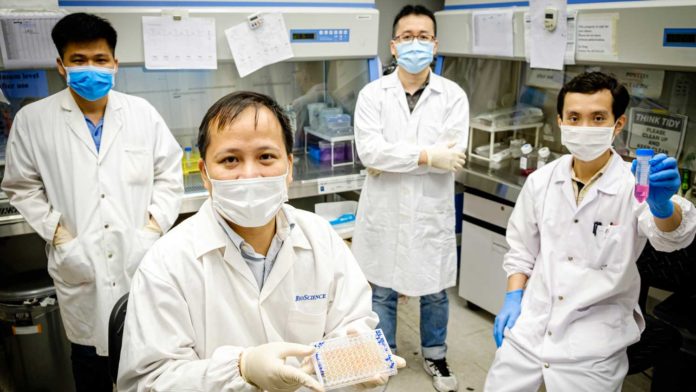An overactive immune system prompts numerous immune system disorders, for example, rheumatoid arthritis and type 1 diabetes. It has recently been connected to severe COVID-19 contaminations, in which immune-system signaling proteins increase to risky levels, prompting harm to the body’s cells.
Scientists from the Nanyang Technological University, Singapore (NTU Singapore) have created a new compound called ASO-1 that reduces the immune system’s overactivation. The compound targets tyrosine kinase 2 (TYK2), a member from the Janus kinase (JAK) family of enzymes that play a crucial role in regulating the body’s immune response. Increased levels of TYK2 are associated with severe COVID-19.
Scientists conducted experiments on human cells grown in a dish. They found that the compound reduced TYK2 levels over a sustained period. It also inhibits immune signaling pathways that are linked with autoimmune disorders.
Professor Phan Anh Tuan from NTU Singapore’s School of Physical and Mathematical Sciences (SPMS) said, “This points to the potential of the ASO-1 compound forming the basis for the treatment of autoimmune conditions.”
“Human genetic studies have suggested that deactivating TYK2 could protect against a broad range of autoimmune conditions such as rheumatoid arthritis, psoriasis, lupus, and type 1 diabetes.”
Dr. Lim Kah Wai, NTU senior research fellow and co-lead author of the study, added: “With the UK-led study of critically ill COVID-19 patients published in Nature linking high TYK2 expression to severe COVID-19, ASO-1 could be a therapeutic agent worth investigating further. We are planning to conduct further pre-clinical work to validate its therapeutic potential.”
The compound is an antisense oligonucleotide (ASO), a type of RNA therapeutics that targets the messenger RNA (mRNA), which carries genetic instructions that cells ‘read’ to make proteins. ASO-1 is designed to bind to TYK2 mRNA, thus preventing cells from producing TYK2 protein.
The NTU researchers plan to partner with several academic collaborators to test ASO-1 in animal models and are open to industrial collaboration on developing the ASO-1 compound for clinical use.
Journal Reference:
- Nhan Van Tran et al. Potent and Selective Knockdown of Tyrosine Kinase 2 by Antisense Oligonucleotides. DOI: 10.4049/immunohorizons.2000108
